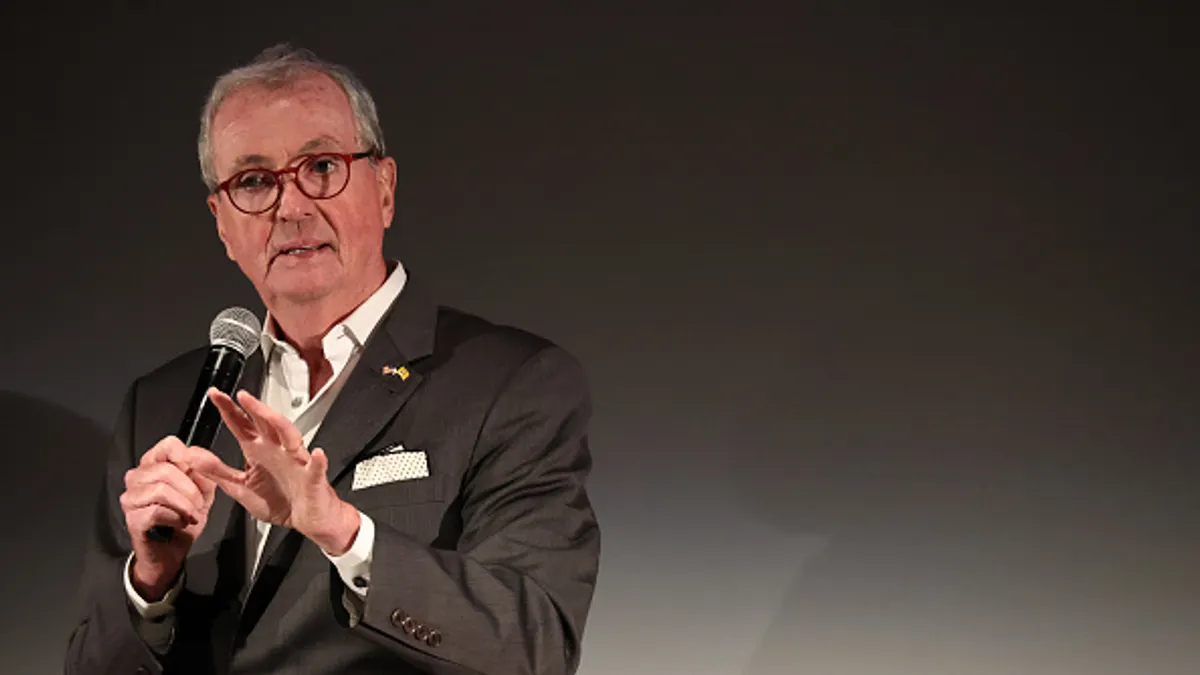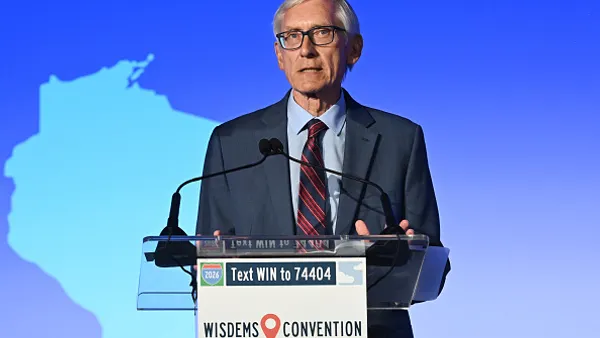Dive Brief:
- New Jersey’s CPA pathways bill took a step forward Thursday when it was passed by the senate’s budget and appropriations committee, teeing it up for a vote by the full senate, according to Aiysha Johnson, CEO of the New Jersey Society of Certified Public Accountants. It had previously been in a kind of legislative limbo since it was unanimously passed by the state assembly and sent to the senate.
- The NJCPA is now optimistic the legislation could be passed and signed into law by Gov. Phil Murphy by mid to late December, Johnson said in comments emailed to CFO Dive. The legislation hadn’t previously been expected to advance until January, potentially even after Gov.-elect Mickie Sherrill’s swearing-in scheduled for Jan. 20.
- “Yesterday's vote was a surprise,” an NJCPA spokesperson wrote in a Friday email. “The legislature moves when it wants to.”
Dive Insight:
If the legislation is put on the books, New Jersey would be on pace to become the 24th state to change the education requirements needed to become a certified public accountant. The Garden State is poised to join a broader push by the industry to change the CPA licensing process to better appeal to a new generation of CPA candidates and address the accounting talent shortage.
Most states have tweaked their laws or rules to offer an alternative path to licensure that would require just a bachelor’s degree rather than five years of post-secondary education as is currently the case, as well as substituting a second year of professional experience for the fifth year of schooling that is typically required to complete 150 hours of college credit.
The Garden State’s legislation would make similar changes. “Essentially, the new pathway allows accountants to opt for more real-world experience rather than take an additional 30 hours of education,” Johnson said in an email, noting that the bill’s effective date would be Jan. 1, 2026. “It will ensure practice mobility for out-of-state CPAs. However, prospective CPAs can still follow the existing pathway, which is 150 hours of education plus one year of experience and passing the CPA Exam.”
Johnson said NJCPA expects that Gov. Murphy would support the bill. “We haven’t encountered any groups or lawmakers who are opposed to it and the bill has broad bipartisan support,” she said.
So far this year, at least 23 states have lowered the 150 college credit hour hurdle, a requirement that has been seen by critics as a contributor to the accounting industry’s talent shortage. Experts have been watching New Jersey and Massachusetts legislatures closely as they are among the contenders that could enable the initiative to hit half of all states by year-end, CFO Dive previously reported.
The states that have passed legislation or changed their rules to date this year are: Ohio, Virginia, Utah, Indiana, New Mexico, Iowa, Texas, Georgia, South Carolina, Tennessee, Minnesota, Montana, Oregon, Nevada, Hawaii, Alaska, Illinois, Connecticut, North Carolina, Pennsylvania, Delaware, California and Washington. New York’s legislation is passed but awaits Gov. Kathy Hochul’s signature.
Keep up with CPA licensure changes with CFO Dive’s tracker on the topic here.
















